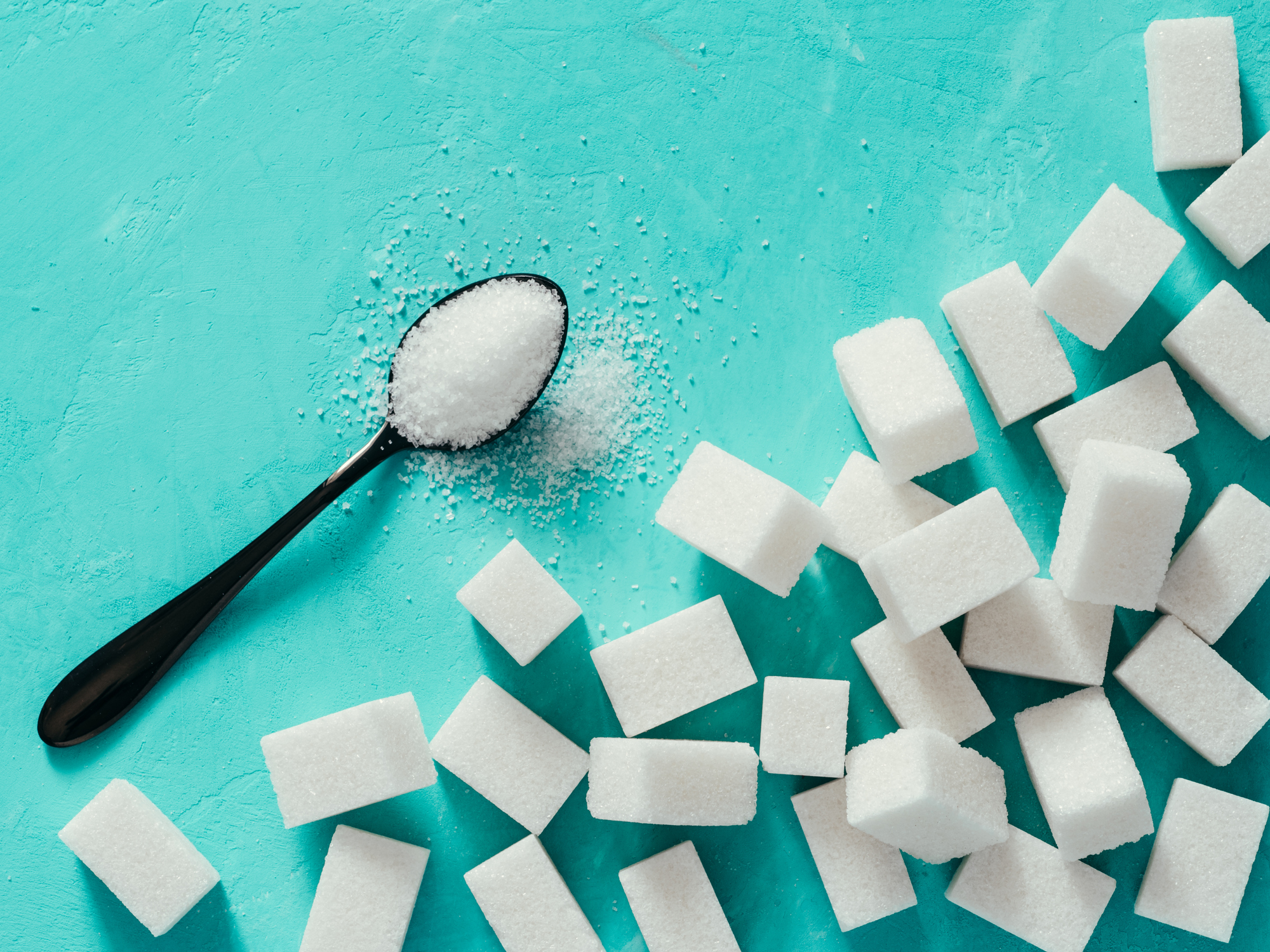Get Easy Health Digest™ in your inbox and don’t miss a thing when you subscribe today. Plus, get the free bonus report, Mother Nature’s Tips, Tricks and Remedies for Cholesterol, Blood Pressure & Blood Sugar as my way of saying welcome to the community!
Sugar’s cancer-fueling secret explained

Sugar fuels cancer. You’ve probably heard that before, but it’s worth repeating.
Because even though scientific studies keep demonstrating the connection between sugar intake and cancer, people are still eating more sugar than ever…
People in the U.S. are consuming about 66 pounds of added sugar per person every year. That’s 19.5 teaspoons per day — quite a bit more than what’s recommended (6 to 9 teaspoons).
The side effects of overshooting our recommended daily sugar intake by so much are serious…
Sugar-related health issues like diabetes and heart disease are on the rise. And then, of course, there’s cancer…
Sugar and cancer: Understanding the Warburg effect
When it comes to cancer, sugar intake is a problem because of something known as the Warburg effect… a phenomenon named for the Nobel Prize-winning physiologist and biochemist, Otto Warburg, who first hypothesized, more than 90 years ago, that cancer cells prefer to quickly break down sugars for energy — a process known as anaerobic metabolism usually reserved for rapid energy demand.
Researchers believe that due to the Warburg effect, sugar stimulates the growth of tumors. And thanks to a study from researchers from the Flanders Institute for Biotechnology, the University in Brussels, Belgium and the University of Leuven, they believe they know why…
In their nine-year study, researchers examined yeast cells because they have a high, quick sugar metabolism, just like cancer cells.
More specifically, they examined something known as the “Ras” gene family in yeast cells, because this family of genes is present in all animal cells, including cancer cells. As a result, “Ras” genes in yeast have become an important part of cancer research.
Researchers believe what they observed in the “Ras” genes of these yeast cells could be the same mechanism behind the growth of aggressive tumors…
They noticed that “Ras” proteins became over-activated in yeast cells that received a rapid and excessive influx of sugar. And over-activated “Ras” causes cells to grow at a speedy pace.
This means, according to researchers, that sugar may over-activate “Ras” proteins and cause excessive growth in cancer cells as well.
“Our research reveals how hyperactive sugar consumption of cancerous cells leads to a vicious cycle of continued stimulation of cancer development and growth. Thus, it is able to explain the correlation between the strength of the Warburg effect and tumor aggressiveness,” said study researcher Professor Johan Thevelein. “This link between sugar and cancer has sweeping consequences. Our results provide a foundation for future research in this domain, which can now be performed with a much more precise and relevant focus.”
Slash your sugar intake, pronto…
So next time you sit down to snack on a sugary treat or drink a soda, think about the Warburg effect…
Hopefully, that will be enough motivation to drastically reduce your sugar intake. If it’s not, remember that eating too much sugar also:
- Suppresses your immune system
- Contributes to skin aging and a loss of elasticity
- Worsens anxiety
- Weakens eyesight
- Contributes to asthma and emphysema
- Causes diabetes
Now, all this doesn’t mean you should never indulge your sweet tooth. Just avoid saturating your cells with sugar daily. Stick to six to nine teaspoons of added sugar intake every day. Or do what I like to do… avoid added sugar altogether most of the time, and then every once in a while treat yourself to something decadent and sweet with a delicious cup of tea or coffee.
Editor’s note: Discover how to live a cancer prevention lifestyle — using foods, vitamins, minerals and herbs — as well as little-known therapies allowed in other countries but denied to you by American mainstream medicine. Click here to discover Surviving Cancer! A Comprehensive Guide to Understanding the Causes, Treatments and Big Business Behind Medicine’s Most Frightening Diagnosis!
Sources:
Scientists reveal the relationship between sugar and cancer — MedicalXpress. Retrieved October 18, 2017.
Peeters, Van Leemputte, Fischer, et al. “Fructose-1,6-bisphosphate couples glycolytic flux to activation of Ras.” — Nature Communications, 2017.
A Nine-Year Collaboration Has Just Shown How Sugar Influences Cancer Cell Growth — Science Alert. Retrieved October 18, 2017.
Targeting Cancer’s Sweet Tooth — Ludwig Cancer Research. Retrieved October 18, 2017.
15 Terrible Things That Happen If You Eat Too Much Sugar — Business Insider. Retrieved October 18, 2017.
How Much Is Too Much? The growing concern over too much added sugar in our diets — University of California, San Francisco. Retrieved October 18, 2017.












